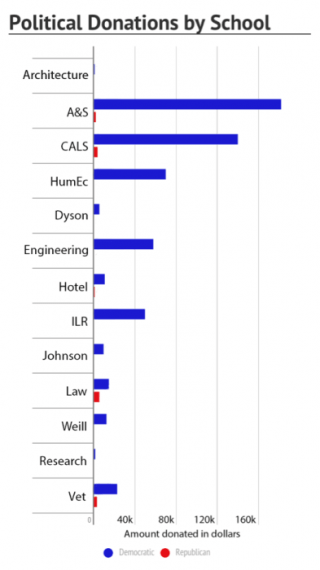
Consider this clip:
This is a post by Dr. George Yancey, and he’s writing about the 5-minute video clip above.
Dr. Yancey writes:
Here is a great example of what I term education dogma. Note that the students are chanting about not being silenced while they are obviously silencing the speaker. My understanding of this situation is that the speaker published something that challenges some of the assertions about a campus rape culture. Such a challenge is an affront to the dogma of the students. Therefore, these students do not feel that the speaker has a right to speak on a different topic. The violation of beliefs they accept without question or doubt creates their incentive to shut down the proceedings.
[…]For the dogmatic, ideas that violate the notions defended by education dogma are deemed “dangerous” and too much for the tender ears of our students. So in additional to shouting down speakers there have been calls for “trigger warnings” and “safe spaces” so that individuals do not have to listen to dangerous ideas. The true danger of these ideas is their threat to certain dogmatic beliefs of our students. These students are unwilling to consider the possibly that they are wrong, or perhaps not as right as they might believe. .
[…]As I watch that video I did not see intellectual powerhouses but I symbolically saw individuals who were yelling nonsense with their hands over their ears so that they would not hear an idea that may confront their presuppositions about reality.
Here, Dr. Yancey compares the secular leftist students to religious fundamentalists: (links removed)
For all practical purposes the students saw the speaker as a heretic. The use of the term heretic can bring up images of torturing, imprisoning and killing of those who disagree. This is not occurring. However, it is reasonable to ask whether the seemingly restraint of the students from such drastic actions is due to their moral compass or to the fact that they do not have the social power to engage in such actions. Education dogma has led to attempting to kick offending businesses off campus, attempts to fire professors, and the official “shunning” of students who hold the “wrong ideas.” Those with education dogma do punish those who violate their beliefs to the highest extent possible given their current level of institutional powers.
So if the holding your hands over your ears and screaming doesn’t work, there is always calling the police, or using other means of coercion. Scary, especially when you consider the history of the secular left in communist countries where God is dead, and the state is all-powerful. How far would these leftist students go to silence people who disagreed with them?
More:
[…][H]igher education occurs in a specific social institution that promotes certain subcultural values and beliefs. Participants in these institutions are expected to accept these values and beliefs without question. These beliefs are not the result of gaining more facts but instead are the dogmatic adaptation of certain social values provided to them by this subculture.
The trouble here is that they don’t want more facts – that’s why they are holding their hands over their ears and screaming.
It makes me think of my own intellectual journey… the way I got started in apologetics in college was by reading transcripts of William Lane Craig debates that I found on the Leadership University web site. What was exciting was reading both sides and seeing what each person would say to respond. Would you go to a football game where only one side showed up? What if you already knew the score in advance, would you still go? What if one team didn’t play very hard, would that be worth watching? What makes intellectual inquiry fun and interesting is that two sides show up and play their best. Otherwise, it’s just brainwashing, not a search for truth. When I write a summary with a good atheist like Peter Millican, I actually feel like I have learned something – I have learned how far I can push each of my arguments, and what I need to study going forward. I care to learn more about what is discussed in a real debate.
This is the striking part of his essay:
Students are responsible for seeking out alternative perspectives and developing an attitude of inquiry allowing them to interrogate their own presuppositions. But their college and university teachers should be held to account since more than a few college professors have done a horrible job introducing critical thinking skills. These teachers come in with a certain set of assumptions and if students agree with those assumptions then they can leave college without any disturbance to their pre-college ideology. Then we have the gall to call that critical thinking. It is anything but critical thinking. It is confirmation thinking and we do our students a disservice with such an approach.
This is why I get so frustrated by non-STEM disciplines. I think those non-STEM areas are the places where what he described is most likely to happen. When you walk into a computer science classroom, you are there to learn something that you will be doing for money in a couple of years. You can go home and use what you just learned to write a sorting program, or improve the speed of your database queries, or write a mobile application and put it out for use. I just don’t get that feeling of usefulness from non-STEM disciplines, aside from maybe analytical philosophy, which is just computer science anyway (symbolic logic). The critical thinking in computer science comes from trying things yourself and seeing what works and doesn’t work in real life. Where is the testing against reality in non-STEM disciplines? There is none.
And then here is something hopeful for conservatives:
Ironically a conservative Christian Republican has a better opportunity to learn critical thinking in college than a progressive humanist Democrat because of the opportunity he/she gains to consider new ideas. When we allow students with certain perspectives to go through college without challenging them we not only promote dogma, we also do those students the disservice of never helping them to engage in the critical thinking necessary to intellectually grow. They are reduced to being a sounding board that regurgitated the latest expression of political correctness.
This is where all my hope lies. I really hope that the leftists educate their next generation into imbecility by refusing to let them consider different points of view. We conservatives must be the ones who consider both sides, and then rise above the mob of fools. To innovate, you have to do things better, and to do things better, you have to do things differently.


